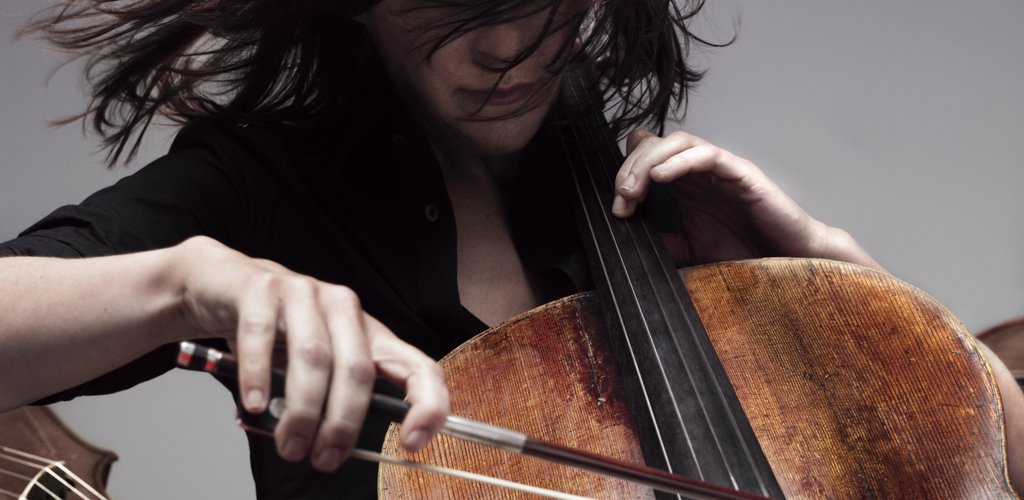The programme featuring names like Hans Werner Henze, Wolfgang Rihm, Jörg Widmann and Manfred Trojahn was very representative of the finest German music of our time, many of these names are even known to those less familiar with contemporary music. What is more, all the pieces performed were fresh and from the 20th century.
The contemporary music ensemble of the Budapest Festival Orchestra was conducted by a great and visibly pragmatic conductor, Franck Ollu from France. He drew contours on the four compositions with confidence, using clear movements pared to the bone. The special – yet acoustically not so advantageous – aura of the evening was created by the auditorium being “placed” on the stage. We followed the events from rows of seats in front of the “festival ensemble” or on the first floor above the stage (just like the author of this review). This way we encountered a rather one-sided sound dominated by instruments that were closer, instead of the balanced sound typical of the usual musical space, which offered new exciting insights on the one hand, but created a concert hall situation to the detriment of the pieces’ interpretation and comprehension on the other. What we saw from the stage perspective of the Béla Bartók National Concert Hall was nevertheless something of a compensation, and it was also worth experiencing the unique circumstances of the stage acoustics, which hardly helped the mutual singing.
The opening piece of the evening was written by Hans Werner Henze (1926-2012), a prolific opera composer from the second half of the 20th century, who recently passed away. The composition entitled Twilight (L’heure bleue) written for a small orchestra in 2001 was indeed born of the spirit of Romantic programme music: it was, or rather, could have been a serenade music filled with pungent nostalgia of the south. Parts of it reminded me of the young Alban Berg, the composer conveyed the impressions of the landscape at twilight in a slightly anxious and hectic manner, agitated also by his own passions. Henze’s style appealed to the listener’s natural sense of harmony, sometimes strongly and sometimes subtly, and though it sounded nice, the question was left unanswered as to what function this type of music has in the complex and convoluted cultural code jungle commonly referred to as the joy of arts.
And somehow this was true of the whole evening. Wolfgang Rihm’s (1952) “concertino” for violoncello and orchestra entitled Versuchung (hommage à Max Beckmann) premiered in 2009 without much interest from audiences – despite the fact that the opening tones were so promising – as the composer was thought to be more interesting and strove more intensely for originality in the past. Personally, I couldn’t help thinking of Berg again, and I shrewdly discovered that the piece actually ends in A major. Or to be precise, I would not have been very surprised if a shiny chord in A major closed the piece. The soloist of the mini concert was the American-born Sonia Wieder-Atherton. She is an excellent cellist, who played intensely, expressively and playfully.
Works by Manfred Trojahn (1949) are mainly unknown to Hungarian audiences, not even one was performed for example at the (seemingly dying) “The music of today” festival, with a history four decades long. The performed composition commemorating Henze (Contrevenir – Pour ensemble – Musique à la mémoire de H. W. Henze) had a rather positive impact on me, while the very nice and informative concert brochure by Péter Halász made me focus on the writing of an author with “suspicious” (or perhaps, on the contrary, worldly and normal) aesthetic principles. We managed to get rid of another prejudice – and we should ask for no more!
I had high expectations for Jörg Widman’s suite entitled Dubairische Tänze, which was preceded by a number of other, meaningful and quality Widmann compositions. Although the suite was technically demanding, the overtly ad hoc series composed as a matter of routine might have been subsumed by their tendency to scorn and joke; some parts could be more powerful if played as a relieving encore.


